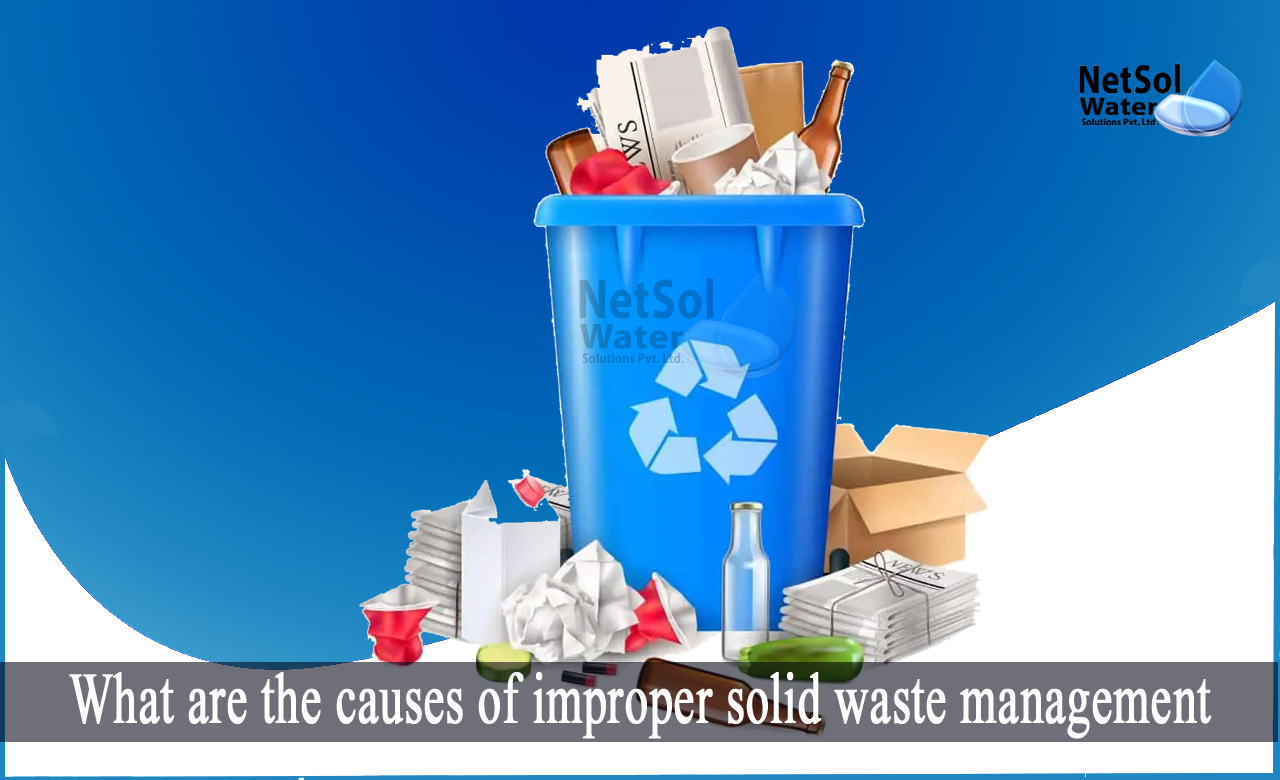Solid waste management: It is a global issue and it impacts almost everyone on the planet. Every year, the globe produces around 2 billion tonnes of municipal solid waste. Without immediate action, this will nearly triple to 3.4 billion tonnes over the next 30 years.
Existing solid waste collection, transportation, and disposal systems in India are in disarray. The problem is exacerbated in urban areas, where fast-growing populations generate increasing amounts of solid waste, which urban local governments (ULGs) are unable to efficiently manage. Improper solid waste management endangers the environment and public health.
What would be the impact on Indian cities if solid waste is not managed properly?
Due to increased industrialization, urbanization, and insufficient investment, India is confronting disastrous solid waste management challenges.
In India, improper solid waste dumps are spreading several diseases. During the research, it is discovered that the solid waste management systems are ineffective, due to rapid population growth, increases in the rate of solid waste generation, management problems, and a lack of legislation implementation and funding.
What are the causes of improper solid waste management?
The primary causes of poor urban solid waste management systems in India are, unintentional city invasion, extreme weather conditions, a lack of social awareness/community involvement, insufficient resources, particularly insufficient equipment, and a lack of funding.
An ineffective municipal solid waste management system can have major environmental consequences, such as infectious diseases, land and water pollution, drain obstruction, and biodiversity loss.
Impact of improper solid waste management
· More than 80% of waste collected in India is inappropriately disposed of in dump yards. This unsanitary technique of waste disposal endangers people's health. Furthermore, waste is frequently dumped on the streets and drains.
· During the rainy season, waste containing hazardous substances gets swept down, and ends up floating in adjacent ponds and rivers, polluting the water. Consumption of polluted water bodies by humans can result in diseases, such as cholera, diarrhoea, and dysentery.
· Illegally dumped waste on streets and land ends up in landfills, causing air pollution. People who live near landfills may breathe in pollutants and chemicals, such as hydrogen sulfide (H2S) generated by the dump.
· In addition to endangering human health, irresponsible solid waste disposal harms animals and marine life. Animals that drink dirty water or cows that graze on solid waste on the streets, are at risk of contracting several diseases.
· Animals are also endangered at landfill sites. In terms of marine life, waste contamination of water bodies can disrupt the aquatic ecosystem's balance, resulting in the death of marine species.
To avoid incorrect solid waste disposal, preventive solid waste management procedures must be implemented. One of the most recommended techniques of solid waste management, is to treat waste at the source.
Conclusion
Solid waste management is a vital component for sustainable, healthy, and inclusive cities and communities, in an era of fast urbanization and population development. However, when it comes to urban development, it is frequently overlooked.
It is everyone's responsibility to manage waste in a sustainable manner. The hour for action has arrived!
How can we assist?
Netsol Water is devoted to solid waste disposaland management solutions in India, whichare both safe and responsible. To do this, we provide a wide range of modern solutions, including solid waste management, wastewater treatment, sewage treatment, organic waste converters, solid waste converters, and much more.
We also advise our clients on how to avoid the disposal of solid waste without treatment, by taking a sustainable approach and using current remediation methods.
For additional information, contact us on +91 9650608473 or send an email to enquiry@netsolwater.com



